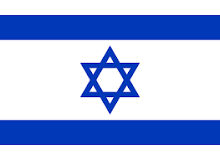
Tel Aviv. Some steps taken by new American president Joe Biden are creating great concerns in Jerusalem.
The last such step is the Biden administration decision to overturn the Trump decision declaring Yemen’s Houthi rebels a terrorist organization, also known as “Ansar Allah.”
Officially Israel will not comment on Biden’s decision but in off the record briefings it is described as “very dangerous and reflecting the total misunderstanding of the situation in the Gulf area.”
The no official comment policy is part of the process of understanding how the new administration sees West Asia and the Gulf.
The Trump administration’s decision came into force on January 19, 2021, the day before President Trump left the White House. Not many days passed, and on February 5, 2021, the Biden administration revoked the designation of Houthi rebels as a terrorist organization. The decision came after Joe Biden’s first foreign policy speech as president, in which he announced that he was halting military aid to the Saudi-led military coalition leading the war in Yemen.
A spokesman for the US State Department announced last weekend that the administration had formally informed Congress of plans to revoke the Houthis’ classification as a terrorist organization, adding: “The decision has nothing to do with our view of the Houthis and their reprehensible conduct, including attacks against civilians and the kidnapping of American citizens.” He continued, “We are committed to helping Saudi Arabia defend its territory against further such attacks.”
According to Yoni Ben Menachem, a senior researcher in the Jerusalem center for public affairs, the Trump administration declared the Houthi rebels a terrorist organization and imposed sanctions on the rebel leaders; however, it took into account the position of the United Nations and human rights organizations and did not impose sanctions that would harm the supply of humanitarian aid, food, and medicine to the people of Yemen.”
“President Biden is working to end the war in Yemen but Iran will use the war to leverage the US to lift sanctions and return to the 2015 nuclear deal.”
The humanitarian crisis in Yemen is the most severe in the world. 30 million Yemenis live under siege, and 80 per cent of the civilians are at risk of famine because of the war that has been going on for seven years.
US officials say president Biden decided on the move out of fear that declaring the Houthis a terrorist organization would undermine efforts to bring peace to Yemen and end the war. The United Nations welcomed the Biden administration’s decision and continues to push for a ceasefire through its special envoy to Yemen.

“Another reason is president Biden’s concern that failure to revoke the terrorist designation would sabotage his efforts to warm relations with Iran and sign an enhanced nuclear deal with it. The Houthis in Yemen are Iran’s protégés and are equipped with advanced Iranian weapons systems, including ballistic missiles and precision-guided drones.”
The researcher says that designating the Houthis as a terrorist organization and imposing sanctions announced by the Trump administration’s US Treasury Department were acts based on reports from the intelligence community. The Biden administration will have to explain to the House of Representatives and the Senate its decision to revoke the classification of Houthis as a terrorist organization.
The Houthi rebels control several provinces in Yemen and have also controlled the capital Sanaa since 2014. Starting in 2015, a Saudi-led military coalition has been working to help Yemen’s legitimate government against the Iranian-backed Houthi rebels.
Saudi Arabia is the country most affected by the Houthi rebels. In September 2019, there was a sizeable attack on Saudi Arabia with precision missiles and drones, for which the Houthis claimed credit. There is strong evidence that the drones/cruise missiles were not launched by the Houthis in the south, but from Iran in the north. They attacked Aramco’s oil facilities in the Al-Baiquiak region and caused considerable damage, resulting in a halt in oil output of six per cent of global output.
On January 22, 2021, the Saudi-led coalition intercepted a guided drone aimed at Riyadh, the Saudi capital. On February 4, president Biden announced that the United States would protect Saudi sovereignty and protect it from the forces operating against it and supported by Iran.
According to Ben Menachem, president Biden’s announcement of an end to support for the Saudi-led military coalition for the war in Yemen is interpreted in the Arab world as an American admission of the failure of the war. “US weapons supply did not translate to a Saudi victory. The Arab world’s assessment is that Iran will leverage the cessation of war in Yemen to the lifting of sanctions and a return to the 2015 nuclear deal without any change. Iran controls the Houthi rebels without constraints and now has more leverage over the Biden administration.”
Professor Uzi Rabi, an expert on Iran and the Gulf region, told Raksha Anirveda that Biden’s decision is a cause of big concern in Jerusalem
“The new president announcement that he will reevaluate the decision to sell F-35 to the UAE, is directly connected to his attitude towards the two monarchies – Saudi Arabia and the UAE. He sees both countries in a different light than his predecessor and the reevaluation of planned arms sales to both is directly a reflection of this view.”
Rabi added that all this is happening while the Houthis rebels are now a well equipped Iranian army force in Yemen, serving only the interests of Tehran.
-The writer is an Israel-based freelance journalist








